Your local planning department has established zones for mom and pop shops (commercial zones), large factories (industrial zones) and homes (residential zones). While certain local zoning ordinances prohibit all types of business (especially richer communities), the majority allow for small, non-polluting home businesses, as long as any home containing a business is used primarily as a residence and the business doesn’t negatively affect neighbors.
Local Ordinance
If you want to find out whether residential zoning rules allow home-based businesses, you must get a copy of your local ordinances from your city or county clerk's office, the city attorney's office, or your public library. Keep in mind that that zoning ordinances are worded in many different ways, and sometimes vaguely, so read it carefully.
Planning Department
If you’re unsure about what the ordinance says, don’t run to a meeting with a zoning or planning official. Calling attention to your home business can be a mistake until you’re sure you meet the requirements. Instead, have a friend or family member make a detailed inquiry.
Appeal
If a planning or zoning board says you can't run a business from your home, you can appeal to the city council or county board of supervisors. You may get an overly restrictive zoning ordinance amended by your municipality's governing body. It also helps to have the support of all your affected neighbors.
Planned Development Rules
To protect residential property values, most subdivisions, condominium complexes, and planned unit developments create special rules—called covenants, conditions, and restrictions—that govern many aspects of property use. As long as the rules of your planned development are clear and enforced, you must follow them. Usually, these rules are enforced more zealously, so it's essential that you are in full compliance.
If you need help with a business, contact our San Diego real estate attorneys at Purdy & Bailey, LLP today. To learn more, call (858) 360-7080 or contact us online.


